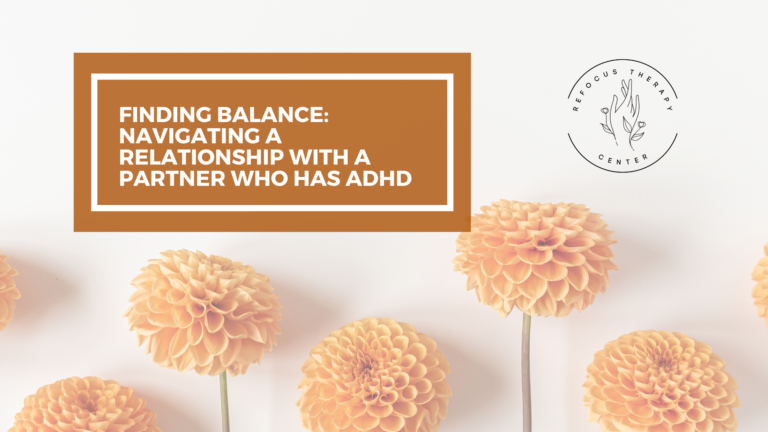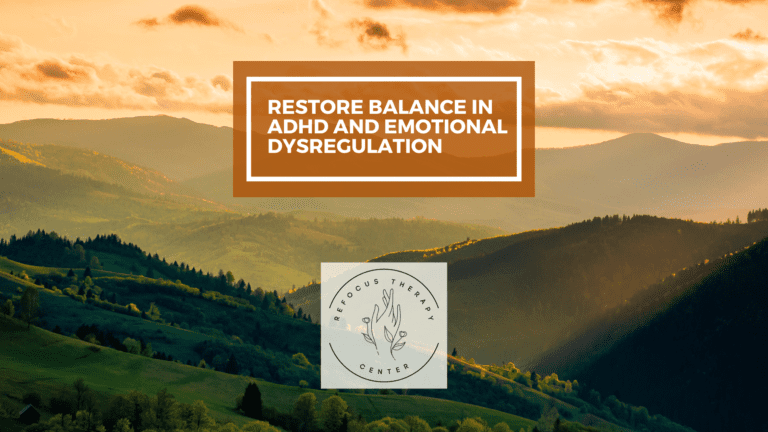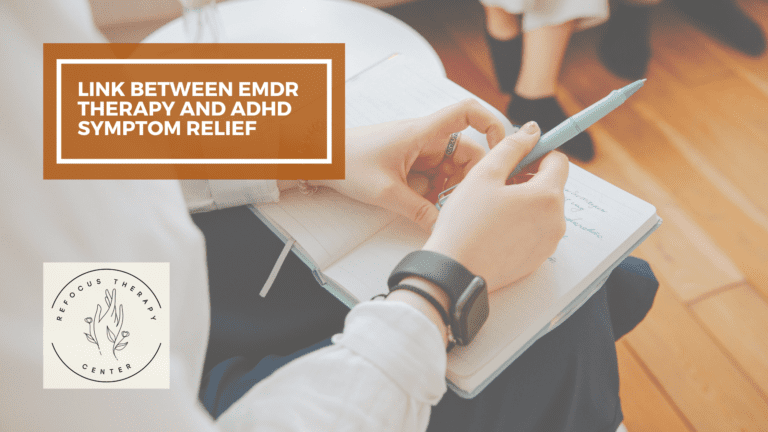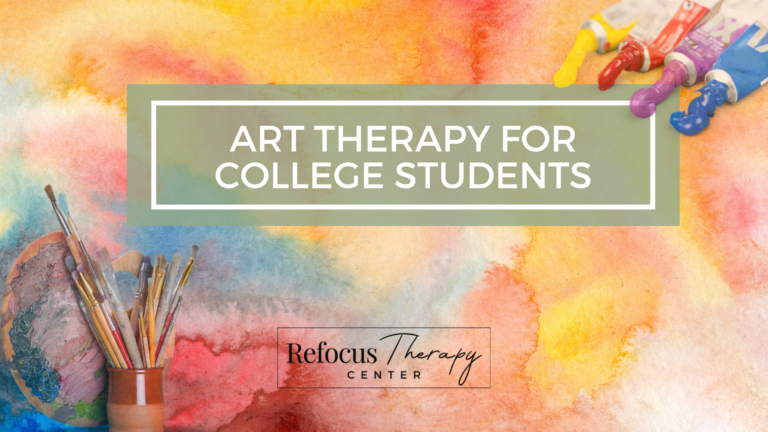Navigating a Relationship with a Partner Who Has ADHD can have unique challenges. ADHD is commonly associated with things like forgetfulness and difficulty concentrating, however it can also affect things like relationships, communication, and personal life. ADHD has a profound impact on the dynamics of relationships, whether it is with friends or romantic partners. Dating already isn’t easy, relationships are hard, communication is stressful, and ADHD can feel like another barrier, but there is hope. If you have ADHD or you are dating someone who has ADHD, this blog post is going to explore the nuances, challenges, and some tips for how to move forward.

For those in relationships with individuals who have ADHD, maybe you found this blog post because you are feeling lonely, stressed, neglected, frustrated or unappreciated.
Carrying responsibility for multiple aspects of your relationship can be exhausting, and maybe you often find themselves handling everything alone.
Maybe you don’t feel like you can’t rely on your partner.
Maybe they never seem to follow through on promises, and you’re forced to constantly remind them of things or else just do things yourself.
Maybe, sometimes it feels as if your significant other just doesn’t care.
It is essential that in our relationships, we work to prevent anyone from feeling invalidated and unseen. Learning how to effectively manage ADHD in your relationships is a crucial asset to a healthy partnership. Things are bound to change, but as long as there is the right communication and strategies, we can foster growth and improvement in our relationships.
Understanding how ADHD symptoms affect relationships
The dynamics influenced by ADHD can significantly impact a partner’s experience and, subsequently, their partner. These may include:
Forgetfulness
- Forgetting to pay bills
- Forgetting to partners birthday or anniversity
- Forgetting Important dates
Impulsivity
- Changing plans at last minute
- Making impulsive purchases that don’t align with household budget
- Abrupt decision making
Emotional Changes
- Emotions changing quickly
- Unpredictable emotional outbursts
- Intense feelings
Navigating these dynamics can be challenging, frustrating, and stressful. Finding the right balance and working collaboratively with your partner is vital. Effective communication, where you and your partner openly discuss what works best for your relationship, is so important in this journey.
So, what can we do to help? Tips for Managing a Relationship with ADHD
- Scheduled Weekly Planning: Consider setting aside a specific time each week for both partners to sit down and plan the upcoming week. This can help ensure that everyone is on the same page regarding important events and commitments.
- Shared Calendar: Consider a shared calendar where both partners input essential dates and events. This shared resource can serve as a visual aid to keep each other informed and reduce the chances of miscommunication. Bonus points if they have reminders or notifications.
- Daily Task Lists: Work together to create lists and place them in a location where they’re guaranteed to be noticed. This can be a practical reminder of what needs to be accomplished each day and can assist in avoiding misunderstandings. Shorter lists are ideal, think Top 3.
- Conflict Resolution: Conflicts happen, try to listen and understand your partner, rather than react. Take the time to talk through issues, offering patience and understanding. Aim for a collaborative approach to find mutually agreeable solutions, instead of expecting your partner to read your mind.
- Support and Understanding: Offer guidance, love, and support to your partner with ADHD. Understand that they may face unique challenges and celebrate their strengths as well. Recognizing and acknowledging their efforts can make a world of difference in building a strong, resilient relationship.
Tips From Miranda Johnson, LCSW
Co-regulation can be so helpful for supporting your partner with ADHD. This could look like just sitting with your partner, hugging them, offering support, or allowing them to express their emotions.
Often times someone with ADHD experiences a lot of guilt, shame, and anxiety.
Someone with ADHD doesn’t want to make their partner mad or disappoint them.
Someone with ADHD doesn’t want to let the dishes pile up or the laundry to overflow.
While talking to your partner with ADHD about how their behaviors affect you can be helpful, opening up a space to talk about their struggles and coming up with a plan together can be very healing.
The goal is to work together to find strategies where both partners feel heard and supported.


Finding the right support and resources for individuals and partners can be helpful for the success of the relationship. We acknowledge that maintaining a relationship with ADHD, whether you have it or your partner does, can pose difficulties and manifest in a range of issues, from forgetfulness to emotional outbursts – all typical challenges tied to ADHD.
Effective communication serves as the basis for a thriving relationship. Creating a safe, judgment-free space where both you and your partner can openly and comfortably express yourselves is important.
Connect with us
If you have any questions, or if you are interested in learning more about ADHD therapy for Adults, Contact Miranda or visit refocustherapycenter.com










